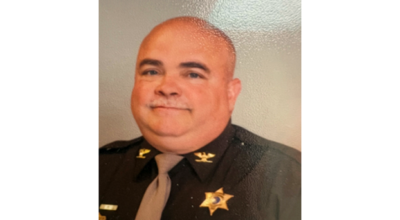County prosecutor leading efforts to combat prescription drug, heroin abuse
Published 8:14 am Monday, April 13, 2015

Cass County Prosecutor Victor Fitz has taken the lead on an initiative to combat the prescription drug and heroin problem in Michigan. (Submitted photo)
A decade that saw the country embroiled in a bloody and protracted war overseas, the 1960s were a turbulent time for millions of American teens and young adults.
With distrust of authority rising, many of these men and women turned to recreational drugs as a way of defying the establishment. While substances such as cocaine, LSD and marijuana saw a surge in usage among the country’s youth, another substance caused thousands of people to fall under its addictive and destructive thrall: heroin.
Today, with law enforcement dedicating much of its time and resources toward combating the explosion of methamphetamine production and abuse taking place across the country, the opium-derived substance has slowly reemerged, due in part to the abuse of painkillers and other legal pills that are prescribed to everyday Americans on a daily basis.
Cass County Prosecutor Victor Fitz has witnessed this growing trend, across the state in his role as president of the Prosecutors Attorneys Association of Michigan (PAAM) and in the county he calls home from his office in Cassopolis. A man fond of using hard numbers to support his arguments, the prosecutor brought up a stat that he finds particularly alarming: the 728 heroin overdose deaths in Michigan between 2010 and 2012. By comparison, 271 people died over overdoses during a similar period, from 1999 to 2002.
“This is not an imaginary crisis,” Fitz said. “It’s literally a flesh and blood issue. More and more people are dying due to abuse of these substances.”
Fitz isn’t the only government official raising the alarm about the rising cases of opiate abuse. Late last month, Rep. Fred Upton joined his colleagues with the U.S. House of Representatives’ Oversight and Investigations Subcommittee in holding a hearing focused on the growing trend of heroin and prescription drug abuse across the nation. Among the experts asked to testify in front of the subcommittee was Prosecutor Fitz, who was invited to Washington by Upton due to his position as PAAM president and his years of experience in prosecuting narcotics-related cases, Fitz said.
“One of my goals as PAAM president is fighting upper-tier drug abuse, so this all dovetailed nicely,” he said.
In his remarks to the Congress members, Fitz shared information on how the heroin and prescription drug abuse has affected communities across Michigan, using statistics compiled from prosecutors across the state. He also warned of the deadliness of the former substance.
Besides its highly addictive qualities, one of the reasons heroin is considered so dangerous is due to the inconsistent nature of how its prepared and sold by dealers, with the bags of the substance containing anywhere from 8 to 40 concentration, which could easily lead to overdoses. Another problem is that dealers often cut the drug with other potentially lethal substances, such as arsenic or fentanyl, Fitz said.
“You just don’t know what you’re getting,” he said. “For a user of heroin, it’s like you’re constantly playing a game of Russian roulette.”
While education and harsher penalties curtailed the rise of heroin abuse in the 1970s, the drug’s profile has risen in recent years due to the emergence of so called “pill mills,” or doctor’s offices that become hotspots due to their over prescription of opiate-based drugs to visitors, Fitz said. With bags of heroin sometimes costing less than packages of marijuana, the substance has become a cheaper alternative to opium addicts.
With a dedicated drug enforcement team, a specialty court program designed for drug rehabilitation and other resources dedicated to handling substance abuse cases, Fitz feels that Cass County is a model on how other counties can handle the issues in their communities. Among the policies that his office has adopted to discourage the use and sell of heroin within the county is to charge sellers with the equivalent of second-degree murder should anyone who uses their product die of an overdose, Fitz said.
“We want to send the message that if you provide someone with a needle of death, there will be severe consequences,” Fitz said. “It is not a harmless drug, and we don’t treat it that way.”






